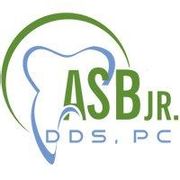Are Flossing & Mouthwash Crucial to Oral Hygiene?

Approximately half of all Americans have gum disease—a startling statistic considering it is mostly preventable. To avoid this condition and its possible consequences—including tooth loss and an increased risk of heart disease—individuals need to brush twice daily. Furthermore, they should incorporate flossing and mouthwash into their regular oral hygiene routine. While some individuals may claim that they aren’t integral to healthy teeth and gums, the guide below looks at what these practices do that brushing can’t.
Why Flossing Matters
Surprisingly, the benefits of flossing have become a controversial topic in recent years. Dietary guidelines issued by the U.S. government excluded flossing in 2016 based on the lack of evidence of its efficacy when fighting gum disease. However, dentists still urge their patients to floss on a daily basis, citing that many flossing studies are conducted in the short-term, which makes it impossible to determine its long-term benefits.
What is well-known is the damage plaque and bacteria do to teeth and gums. Additionally, plaque can’t be removed by brushing alone. This plaque will accumulate in hard-to-reach areas, such as between the teeth, where only floss and specialty dental equipment can reach it.
How Mouthwash Contributes to Good Oral Hygiene
 Mouthwash is often thought of as a way to prevent bad breath. However, it offers a lot more than that. There are many different types of mouthwash on the market, including those designed to reduce the effects of gum disease by rinsing away any remaining particles left after brushing and flossing. It can also have enamel-strengthening properties. While mouthwash with alcohol can cause dry mouth, other varieties prevent this uncomfortable dental condition. For example, mouthwash containing xylitol boosts saliva production.
Mouthwash is often thought of as a way to prevent bad breath. However, it offers a lot more than that. There are many different types of mouthwash on the market, including those designed to reduce the effects of gum disease by rinsing away any remaining particles left after brushing and flossing. It can also have enamel-strengthening properties. While mouthwash with alcohol can cause dry mouth, other varieties prevent this uncomfortable dental condition. For example, mouthwash containing xylitol boosts saliva production.
Allen S. Braumiller Jr. DDS, PC makes it a point to provide helpful oral hygiene tips to his patients from Coweta, OK, and the surrounding communities. This dentist is equipped to treat patients of all ages, from kids on their first visit to adults seeking restorative procedures. Services include exams, X-rays, fillings, root canals, extractions, bridges, bonding, and crowns. If you’re concerned about the cost of treatment, they even offer a convenient payment plan. Take advantage of their more than three decades of experience by calling (918) 486-6516 today. You can also visit the website for more useful dental care information.
About the Business
Have a question? Ask the experts!
Send your question

